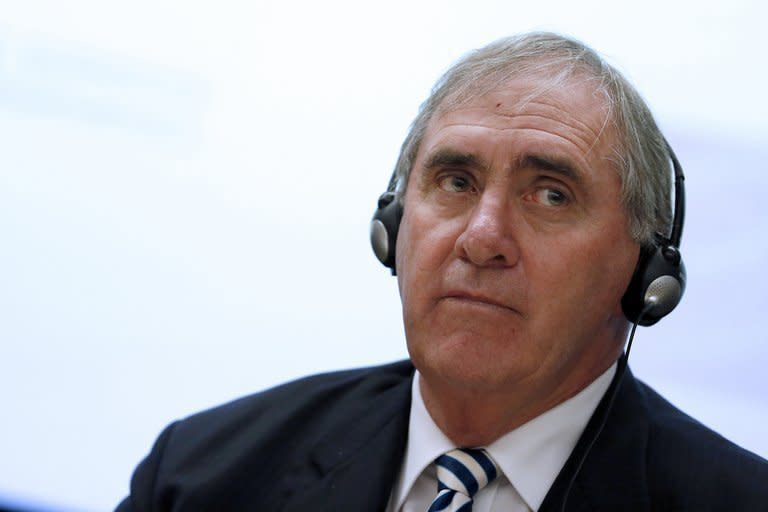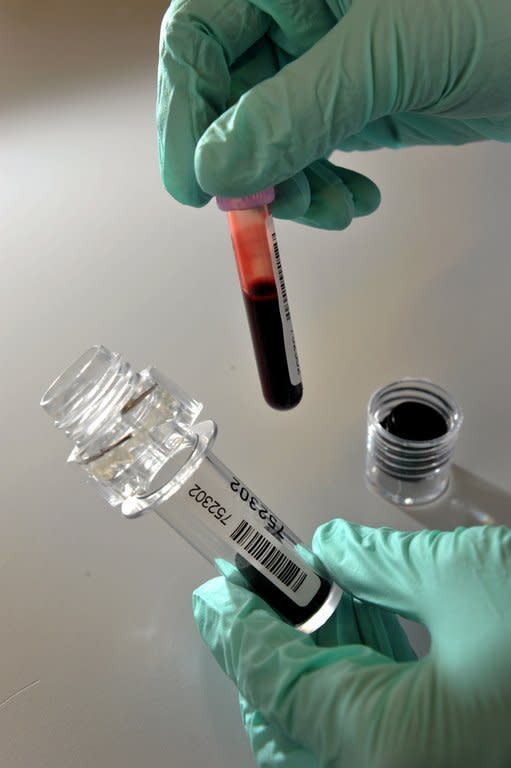Australia battles sports doping fallout
Doping agencies urged Australian cheats to come clean Friday as concern mounted that everyone has been tarred with the same brush after a probe pointed to widespread drug use in professional sport. The bombshell Australian Crime Commission inquiry, which said use of prohibited substances including peptides, hormones and illicit drugs was common across multiple sporting codes, has sent shockwaves through Australia. "Blackest day in sport", ran the Sydney Morning Herald headline while the tabloid Sydney Daily Telegraph screamed: "Sport on Trial." The broadsheet Australian newspaper said doping threatened the sporting culture of a nation that has long had a reputation as being predominantly drugs-free. "The report will alarm a sport-loving nation that prides itself on the prowess and fairness of its athletes," it said in an editorial. The official report indicated that sports scientists, coaches and support staff as well as doctors and pharmacists were involved in the provision of drugs, which were often supplied by organised criminal gangs. World Anti-Doping Agency president John Fahey said tougher penalties were expected to be adopted by his organisation in response to the growing use of new-generation, performance-enhancing drugs such as peptides. He told The Australian that any athletes who came forward and offered "substantial assistance" would be shown leniency. "If you are caught, you will be dealt with in a manner that can take you out of the sport forever," he said. "If they want to reduce that sanction, the opportunity exists today for them to do it, and I encourage them to do it." In an indication of the growing problem, the Australian Sports Anti-Doping Authority (ASADA) said the importation of peptides had exploded with seizures up 255 percent over the past year. ASADA chief Aurora Andruska said peptides, which increase levels of human growth hormone, were the "new generation" of performance-enhancing drugs but only two labs in the world could test for them, in Cologne and Montreal. "We've been talking to sports about peptides, so we're very conscious about that being a new generation of drug that people are looking to use to improve their performance," she told reporters. The crime commission report did not name specific players, teams or codes due to legal reasons and cricket, football and rugby union authorities insisted they were not under investigation, although rugby league admitted it was. Former Australian prime minister Kevin Rudd voiced growing concerns that all sports had been tarnished by such broad-brush allegations and said more information must be made public. "The key thing now is to establish the facts -- which players, which clubs -- because I'm a bit concerned about every person out there who we've all watched, admired, is now walking around with a total cloud over their head," he said. He was joined by senior opposition figure Joe Hockey who said it was unfair on athletes who are clean. "If I were the authorities, I'd be getting it out there as quickly as possible about exactly how far this goes, rather than tarring the brush across every professional sportsman in the country," he said. ASADA's Andruska said their hands were tied, but insisted the drug problem was "across a range of sports". "Under our legislation, once we have started an investigation we are not in a position to talk about the investigation in any detail at all and that's because there is protection there," she told ABC radio. High-profile doping cases have been rare in Australia, with bans for cricketer Shane Warne in 2003 and rugby's Wendell Sailor in 2006 among the exceptions. Cycling Australia officials Stephen Hodge and Matt White departed the body in October in the wake of the Lance Armstrong scandal, when they admitted taking drugs during their riding careers.



